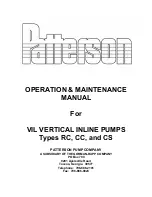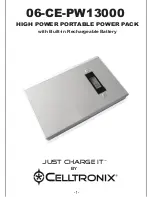
-26-
Model G0495X (Mfd. Since 07/19)
To surface plane on jointer:
1. Inspect stock to ensure it is safe and suitable
for the operation
(see Stock Inspection &
Requirements section).
2. Set infeed table height to desired cutting
depth for each pass.
IMPORTANT: To minimize risk of kickback,
do not exceed a cutting depth of
1
⁄
8
" per pass
when surface planing.
3. Set fence to 90˚.
4. Start jointer.
5. Place workpiece firmly against fence and
infeed table.
IMPORTANT: To ensure workpiece remains
stable during cut, concave sides of workpiece
must face toward table and fence.
6. Feed workpiece completely across cutter-
head while keeping it firmly against fence
and tables during the entire cut.
IMPORTANT: Keep hands at least 4" away
from cutterhead during the entire cut. Instead
of allowing a hand to pass directly over cut-
terhead, lift it up and over cutterhead, and
safely reposition it on the outfeed side to con-
tinue supporting workpiece. Use push blocks
whenever practical to further reduce risk of
accidental hand contact with cutterhead.
7. Repeat Step 6 until entire surface is flat.
Tip: When squaring up stock, cut opposite
side of workpiece with a planer instead of the
jointer to ensure boths sides are parallel.
Surface Planing
Failure to use push blocks when surface
planing could result in your hands contact-
ing rotating cutterhead, which will cause
serious personal injury. ALWAYS use push
blocks when surface planing on jointer!
Figure 21. Example photo of a surface planing
operation.
Removed
Surface
NOTICE
If you are not experienced with a jointer,
set depth of cut to 0", and practice feeding
workpiece across tables as described. This
will help you prepare for actual operations.
The purpose of surface planing (see example
Figures below) on the jointer is to make one flat
face on a piece of stock to prepare it for thickness
planing on a planer.
















































